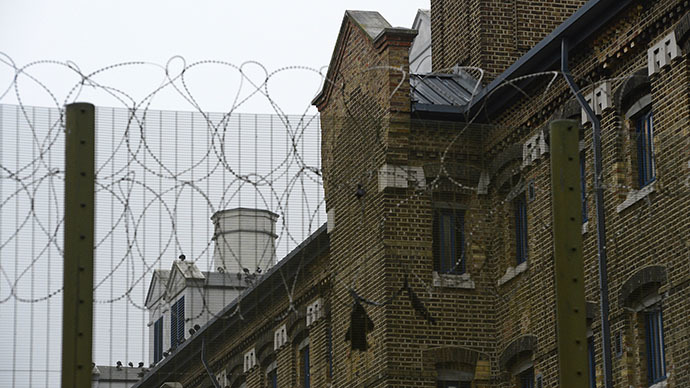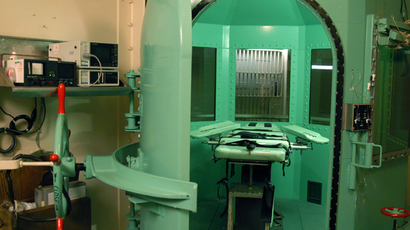Don’t go to jail: Only 841 places left in entire British penal system

UK prisons have reached 99 percent capacity, sparking fears that offenders may have to be kept in police stations or be released into the community ahead of time.
The latest statistics from the Ministry of Justice show that
there are currently 84,987 inmates, while the total “usable
operational capacity” of the system is 85,828 - meaning that only
841 places remain in the whole of England. Usable operational
capacity is measured as the total number of spaces minus 2,000,
as not all places can be filled at all times because some inmates
need to be kept in the prison category that matches their
sentence and gender.
"Making sure there are enough spaces in our prisons for all
those that need locking up is one of the basics of the job for
any Justice Secretary,” said MP Sadiq Khan, Labour's shadow
justice secretary.
"The public need confidence that when a judge sends someone
down for a serious or violent crime, they can be locked away
securely.”
The actual number of prisoners is lower than it was 12 months
ago, but 13 prisons have shut down in the past three years, with
four more scheduled to close by next spring. In total, 5,000
places have been lost in the past year alone.
The British government says that this is a planned streamlining
of the penitentiary system, and that there is no immediate threat
of criminals being let loose ahead of schedule.
"We have more than enough space within our prisons to
accommodate all offenders without relying on police or court
cells,” Conservative Prisons Minister Jeremy Wright said.
"I have been clear that we will never be in a position where
we can't take those sent to prison by the courts. What we won't
do is spend hard-earned taxpayers' money on keeping open
expensive capacity we do not need."
The government says it is opening 400 more places starting on
Monday. It also plans to build a super-prison near Wrexham, which
will accommodate up to 2,000 people when it opens in 2017.
But Prison Reform Trust, a leading non-profit, says the issue is
distracting from the real problem surrounding prison conditions
and rehabilitation.
“Questions need to be raised about the pace and scale of
change in the justice system,” said its director Juliete
Lyon.
“Solutions lie not in closing small local prisons and building
supersized jails but in effective community sentences, treatment
for addicts and mental health care. Cramming ever greater numbers
of people into overcrowded prisons with fewer staff and less time
out of cell is no way to transform rehabilitation,” she said.














